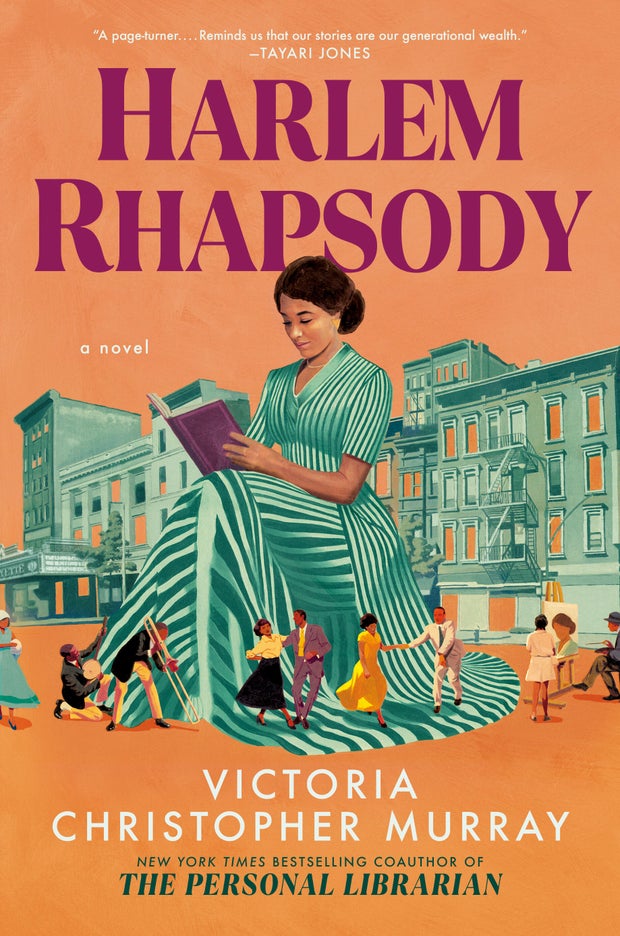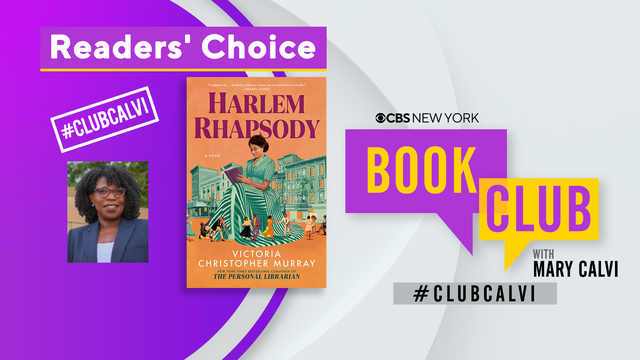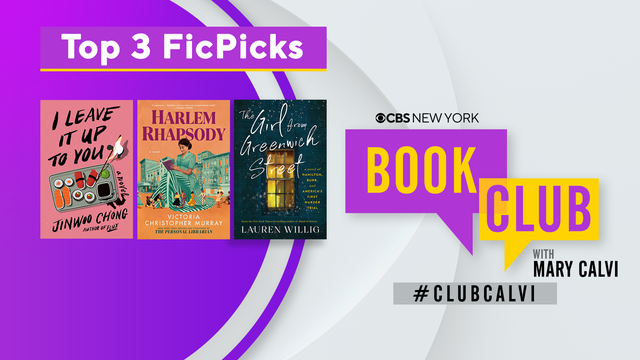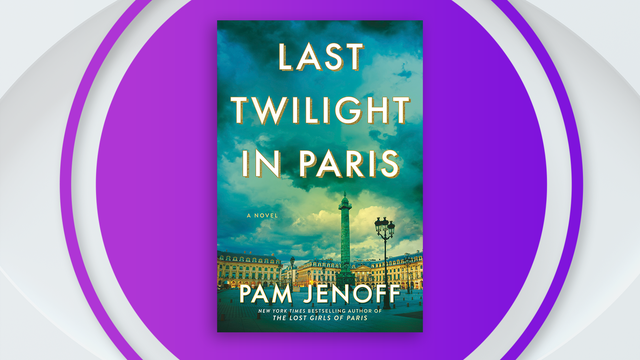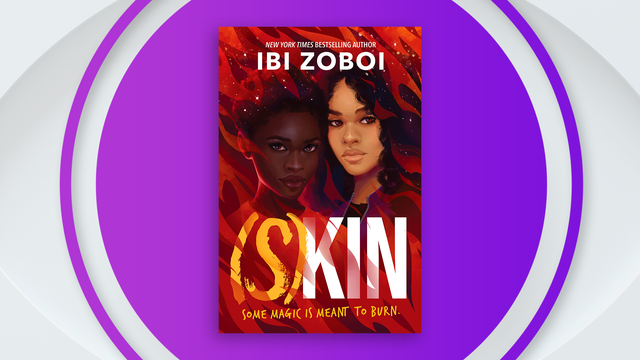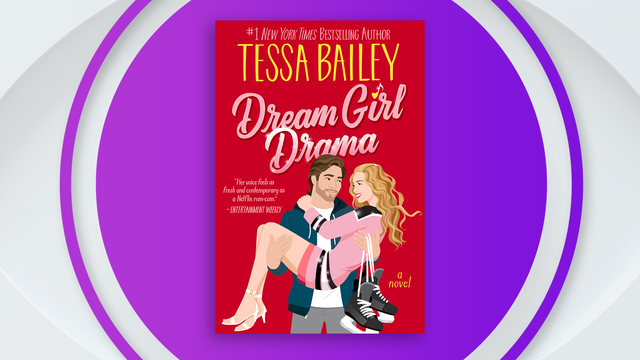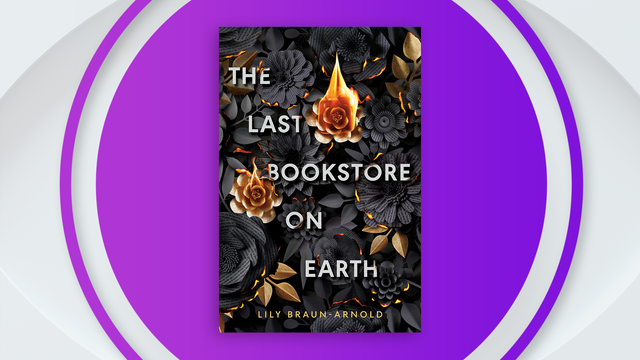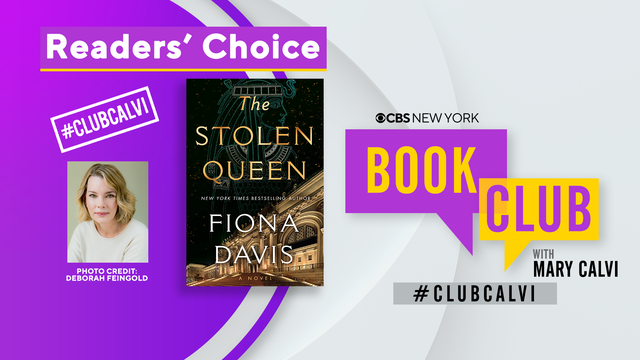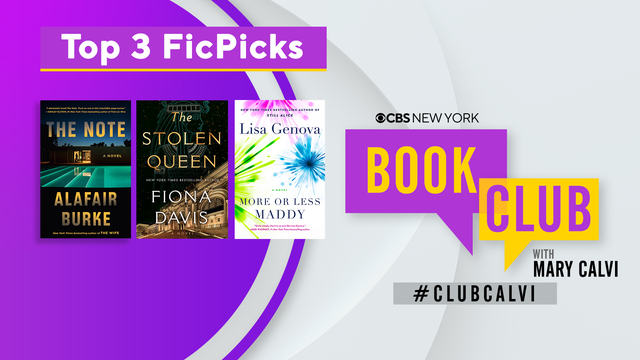"Harlem Rhapsody" voted Readers' Choice for CBS New York Book Club
Please consider joining our Facebook group by CLICKING HERE.
Find out more about the books below.
Club Calvi has a new book: "Harlem Rhapsody" by Victoria Christopher Murray
The CBS New York Book Club asked you to vote on which Top 3 FicPick should be its next read: "I Leave It Up To You," by Jinwoo Chong, "Harlem Rhapsody," by Victoria Christopher Murray or "The Girl From Greenwich Street," by Lauren Willig.
Club Calvi revealed that "Harlem Rhapsody," a historical novel, was voted the Readers' Choice.
In a message to readers, author Victoria Christopher Murray said: "It's the 1920s and literary giants like Langston Hughes and Zora Neale Hurston are rising to fame because of one woman: Jessie Redmon Fauset, the literary editor of The Crisis magazine. She discovered, she published all of the Harlem Renaissance greats before anyone else. But she held a secret that could ruin everything."
Fauset was having an affair with the civil rights activist W.E.B Du Bois, who was also her boss.
You can read an excerpt below below and get your copy of the book.
The CBS New York Book Club focuses on books connected to the Tri-State Area in their plots and/or authors. The books may contain adult themes.
________________________________________________________________________________________________________
"Harlem Rhapsody" by Victoria Christopher Murray
From the publisher: In 1919, a high school teacher from Washington, D.C arrives in Harlem excited to realize her lifelong dream. Jessie Redmon Fauset has been named the literary editor of The Crisis. The first Black woman to hold this position at a preeminent Negro magazine, Jessie is poised to achieve literary greatness. But she holds a secret that jeopardizes it all.
W. E. B. Du Bois, the founder of The Crisis, is not only Jessie's boss, he's her lover. And neither his wife, nor their fourteen-year-age difference can keep the two apart. Amidst rumors of their tumultuous affair, Jessie is determined to prove herself. She attacks the challenge of discovering young writers with fervor, finding sixteen-year-old Countee Cullen, seventeen-year-old Langston Hughes, and Nella Larsen, who becomes one of her best friends. Under Jessie's leadership, The Crisis thrives...every African American writer in the country wants their work published there.
When her first novel is released to great acclaim, it's clear that Jessie is at the heart of a renaissance in Black music, theater, and the arts. She has shaped a generation of literary legends, but as she strives to preserve her legacy, she'll discover the high cost of her unparalleled success
Victoria Christopher Murray was born in Queens and splits her time between Washington, D.C. and Los Angeles.
"Harlem Rhapsody" by Victoria Christopher Murray (ThriftBooks) $22
Excerpt: "Harlem Rhapsody" by Victoria Christopher Murray
(Introduction to the excerpt: Jessie Redmon Fauset and her mother have just moved to Harlem and are about to tour their new apartment when this scene opens.)
"You can't compare Philadelphia and Washington, DC, to this. New York is everything. It's music and theater and . . . come on, Maman." Carrying my valise, I rush toward the sienna-brick brownstone.
At the first step, I glance over my shoulder. My mother stands in the same spot. In her pale gold overcoat and matching cloche, she is as fashionable as any New Yorker. But her eyes are as wide as mine as she soaks in the city's vivacity.
My heart swells for the woman who didn't birth me but who, for the last twenty- five years, has nurtured me with love. "You were born from my heart," she's told me since I was twelve.
Over the city's music, I call out, "Allez, Maman!" in the same tone she'd used with me moments before.
At the front door, my hand trembles with excitement as I try to steady the key. We step into the vestibule and then through another door before we enter the hallway and I move to the only door on the first floor. But before I insert the key, the door swings open.
"Will!"
"Welcome to New York!"
I study the man I'd first contacted when I was a student at Cornell University, some sixteen years ago. His mustache has been trimmed since I last saw him in August. And there is a bit more silver blending with the jet-black hair of his beard. As always, he's dressed impeccably in one of his brown three- piece, wide- lapel suits. Tonight, though, he wears a more formal bow tie rather than the neckties I know he prefers.
The twinkle in his eyes and his wide smile draw me closer. However, just as I reach for him, I remember. My mother. How had I forgotten her so quickly?
That is the effect of W. E. B. Du Bois. His mere presence emits a magnetic force that is difficult to deny or resist.
This is a reminder that now, living in New York, I must be measured in my actions. This will be different from seeing Will on his occasional stopovers in Washington, DC.
I shift so my mother can enter our new apartment, but she doesn't take a single step. She expects an introduction. "Maman, allow me to present Dr. William Du Bois."
"Mrs. Fauset, it is my absolute pleasure to finally make your acquaintance." He takes her valise.
My mother's smile has vanished. She steps over the threshold and greets Will with a curt "Good afternoon."
My mother strolls around the parlor, taking in the regal Victorian-style room decorated in crimson and gold, and runs her hands over the oak edge of the sofa, then the matching damask-upholstered wingback chairs.
"This is a nice apartment." I hope my mother agrees. I turn to the bay windows facing Seventh Avenue. "But look at this, Maman. This . . . will be my favorite place."
The windows jut out of the brownstone like a pair of owl's eyes keeping watch over the neighborhood.
Will says, "This is the largest apartment, the only one in the building that hasn't been split."
"What do you mean?" My eyes are once again on my mother as she rounds the room.
"With so many people flocking to New York from the South, landlords are reconstructing the spaces, dividing apartments in half, then doubling the rent," Will explains. "I know the owner of this brownstone, so I secured one of the best furnished spaces in Harlem for you."
My mother's steps are silent against the Oriental area rug as she saunters toward the back.
"Some of the gals from the office prepared the apartment. Then, of course, Helen," he says, referring to my sister. "We wanted to make certain you had everything you'd need until your belongings arrive."
My mother pauses where the parlor spills into the kitchen. Even with the icebox, stove, and sink, there is space for a hutch and a small dining table.
"Would you like me to show you the two bedrooms and the water closet, Mrs. Fauset?"
"No." She waves her hand. "I'm certain those rooms are sufficient."
I nod, Will nods, and my mother says nothing as she lowers herself onto the sofa. She sits—back straight, shoulders squared, her coat still buttoned—as if she hasn't determined whether she'll stay.
After a moment, I sit in one chair and Will in the other. Maman speaks first: "Dr. Du Bois, thank you for not only finding us this home, but for securing this job with The Crisis magazine for my daughter."
"No thanks is necessary. I wanted to make certain you would be comfortable, and Jessie . . . I mean, Miss Fauset has earned this position as the literary editor. I expect that section of The Crisis to thrive under her leadership."
"I agree; my daughter will be a credit to your magazine. Jessie has always been a writer, and has been educated well. She's not only a Phi Beta Kappa graduate, but she's proficient in several languages. And in her teaching career, she has already—"
"Maman," I interrupt, dismayed. My glance shifts between her and Will. "I'm certain Dr. Du Bois doesn't desire a recapitulation of my credentials."
"Yes, I was quite impressed with your daughter when I interviewed her for this position."
"Is that when you first became"—she pauses—"impressed?" Another pause. "With my daughter?"
If Will hears my mother's derision, he gives no indication. "I was very impressed. Beyond Miss Fauset's writings is her understanding that literature is a venue that must be utilized to display the best of the Negro race."
"On that, we can agree, Dr. Du Bois. Literature can be useful in this fight for equality. That's what I tell my daughter. She can change this world with words."
Excerpted from Harlem Rhapsody by Victoria Christopher Murray. Copyright © 2025 by Victoria Christopher Murray. All rights reserved. No part of this excerpt may be reproduced or reprinted without permission in writing from the publisher.
